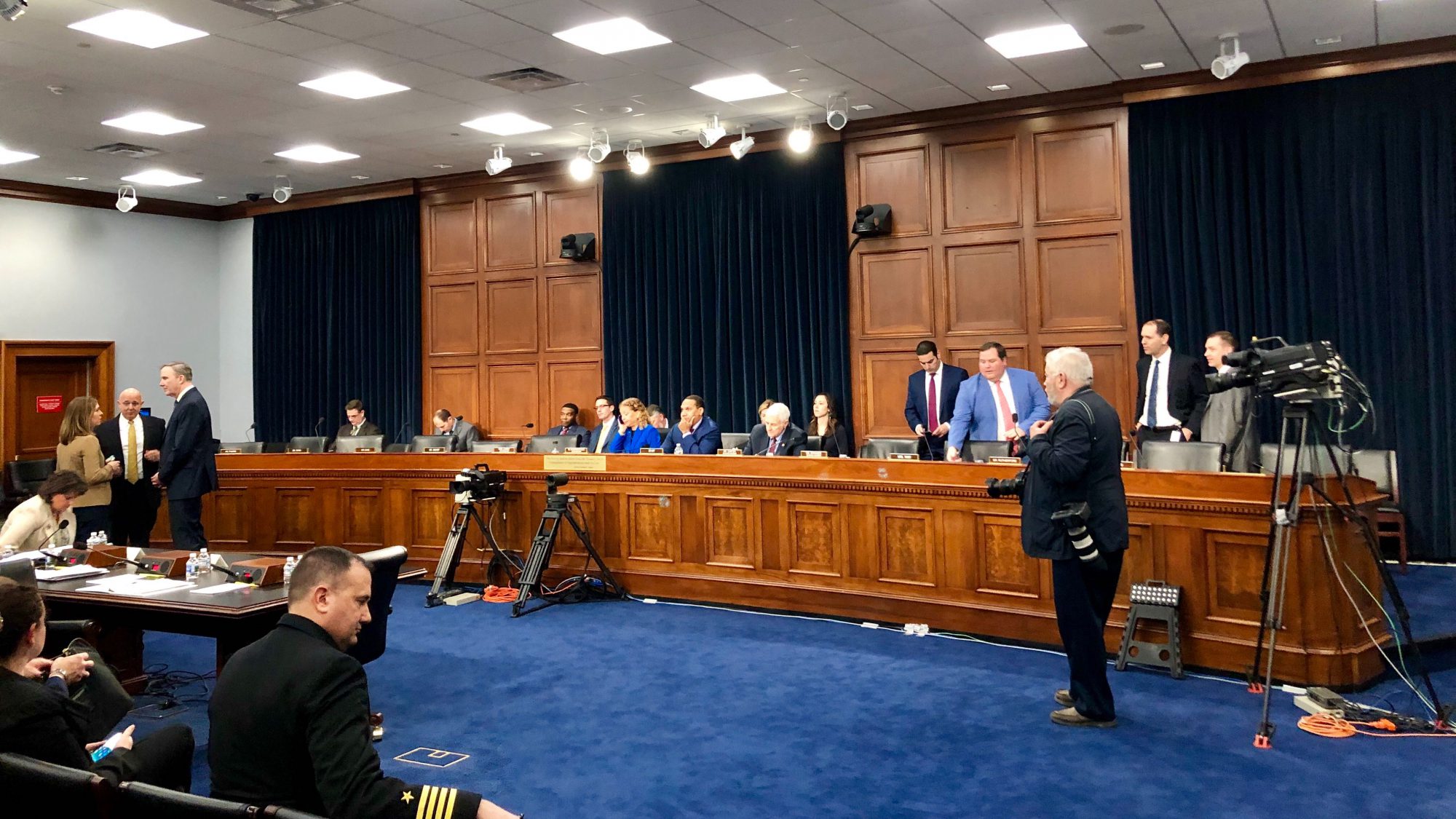WASHINGTON — In a contentious House Appropriations subcommittee hearing Wednesday, Chairwoman Debbie Wasserman Schultz interrogated Assistant Secretary of Defense Robert McMahon over the reallocation of funding for President Donald Trump’s national emergency declaration, saying that the plan would take money from vital projects that Congress then would be asked to fund again next year.
The declaration, which invokes the National Emergencies Act of 1976 to draw on Defense Department funding, would redirect money intended for military construction projects to construct a barrier at the southern border.

Members wait for a House Appropriations subcommittee hearing on the national emergency and its effects on military construction and readiness to begin. (Cameron Peters/MNS)
According to McMahon, no currently authorized military construction projects would be canceled to fund the emergency. Instead, it would draw on unobligated funds, and projects with little on military readiness would be deferred until additional funding is requested as part of the president’s 2020 budget.
Wasserman Schultz, however, objected to the Defense Department plan as a way of circumventing a “bipartisan, bicameral agreement.”
“You’re fooling no one,” she said. “You are taking money from vital projects … and spending that money on a wall and then asking for the money to be backfilled later in the next fiscal year when we already had that debate and the president’s proposal was rejected.”
Democrats also objected to the emergency declaration itself. In her opening statement, Wasserman Schultz described it as a “fabrication” and said that border crossings and apprehensions at the border are at “historic lows.”
The House voted 245-182 on Tuesday to block the president’s national emergency declaration. The bill will advance to the Senate, where its privileged status means that it must be voted on, but it is unlikely to pass with enough votes to survive a presidential veto.
Separately, the declaration is facing multiple legal challenges, including a lawsuit brought by 16 states.

Chairwoman Debbie Wasserman Schultz considers testimony on the national emergency and its effects on military construction and readiness at a House Appropriations subcommittee hearing on Wednesday. (Cameron Peters/MNS)
In prepared testimony, assistant secretaries of the Army, Navy and Air Force stated unequivocally that military readiness would remain the priority of their respective branches. They also clarified that while a Defense Department process to identify possible funding sources for the barrier is under way, no military department has yet been instructed to redirect funding.
According to Assistant Secretary of the Navy for Energy, Installations and Environment Phyllis Bayer, “until such determinations are made, there is only speculation as to potential impacts.”
However, Assistant Secretary of the Army for Installations, Energy and Environment Alex Beehler ruled out family housing and barracks projects as a source of funding for the national emergency.
Members of the committee expressed frustration with witnesses over the Defense Department management of its budget, including the approximately $21.6 billion in unobligated military construction funding that has accrued over the last five years.
“[Military construction] projects that we appropriate are not a slush fund that give the administration flexibility to spend anyway they wish,” Wasserman Schultz said.

